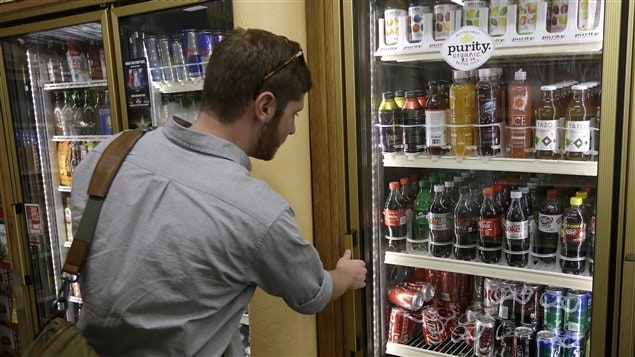As consumption of soft drinks declines in North America, companies are increasingly marketing to children poorer countries, says a U.S. consumer advocacy group. The Dietitians of Canada has just taken the position that sodas should be taxed, adding its voice to that of the Canadian Diabetes Association and other groups. There are opposing groups which argue against such a tax.
The lobby effort against the consumption of soft drinks is having its desired effect. In Canada, consumption declined 14 per cent between 1999 and 2009 to 105 litres annually per capita. In the U.S., it declined by 25 per cent between 1998 and 2014.
‘Borrowing a page from the tobacco industry,’ accuses advocacy group
“With soda sales in a tailspin in the United States, Coca-Cola and PepsiCo are borrowing a page from the tobacco industry playbook and investing heavily to boost consumption in low-and middle-income countries,” says a news release from the Center for Science in the Public Interest (CSPI).
It goes on to charge that the two companies have pledged to not market to children, but that the pledges “are riddled with loopholes.” It accuses both companies of “clearly targeting children and adolescents using cartoon characters, celebrities, music tie-ins, social media and prizes.”
Soft drinks contain a lot of sugar and few, if any, nutrients. Even moderate consumption is linked with increased risks for cardiovascular disease, diabetes, obesity and other serious medical problems.
The government agency, Statistics Canada reports that “one in four adult Canadians, or about 6.3 million people, were obese in 2011–2012. Since 2003, the proportion of Canadians who were obese has increased 17.5%.”
Use tax revenue to promote health and nutrition, suggests group
The CSPI wants governments around the world to restrict the sugar content of drinks and to tax soft drinks, and to use the revenues to sponsor health and nutrition programs. 17.5%.”







For reasons beyond our control, and for an undetermined period of time, our comment section is now closed. However, our social networks remain open to your contributions.